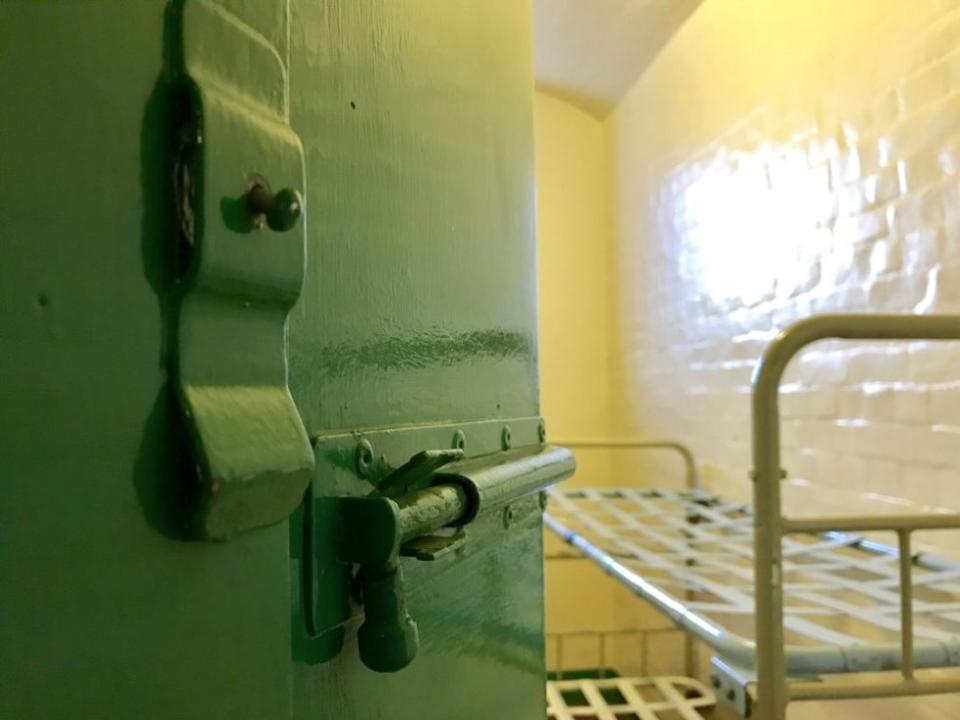Freeing Britain’s ‘ghost prisoners’ is the first step towards prison reform

“Torturous” indeterminate sentences have led prisoners to lead decades of their lives in jail, writes Lucy Kenningham
Imagine being imprisoned not for a crime you have committed but for a crime that you might commit in the future. It is a situation that lies at the nightmarish juncture between being Kafkaesque and Orwellian. Yet it is not a fictional dystopia. It is modern Britain.
This is the curse of an imprisonment for public protection sentence or IPP. Under this law, people are given a minimum sentence they must serve, but can be detained indefinitely and released only if a Parole Board determines it is safe to do so. These sentences, introduced by New Labour in 2005, were deemed unlawful by the European Court of Human Rights in 2012 and abolished – with the coalition government at the time saying they were simply “not defensible”. But the reversal had no retrospective impact, so the latest prisons data has 2,796 people still languishing in jail with no certainty of getting out. Some 705 of these people now find themselves having been locked up for a full decade, or more, beyond their ‘minimum tariff’. The disproportionality is staggering: one man, for example, has served over 18 years having been sentenced to two and a half.
Even once you’re out, you’re not safe. With an IPP, even after you are released into the community they can be recalled to jail for a period of 99 years. This is why the sentence is known, Ronnie Sinclair explains, as “the death sentence by the backdoor”. She received an IPP for smashing a flowerpot and is now on licence in the community. “Even when you’ve been released IPP hangs over you, because you could be recalled anytime. It doesn’t matter if you haven’t done anything wrong.”
This could be for a minor infraction of their licence conditions, like missing a probation meeting for a medical emergency, or even just for being accused of criminal activity. Inmates on IPPs can spend years in prison awaiting release, even if they are cleared of allegations by the police. Shaun Lloyd was jailed for three years at the age of 18 after pushing taking (and then returning) someone’s mobile phone in 2005. Lloyd has been released and recalled a number of times for taking heroin – which he became addicted to while in prison.
Overall, around 9,000 people were given IPPs. According to the United Group for Reform of IPP, 287 people who received IPPs have died in prison, and 90 of these have taken their own life. This indiscriminate punishment has been compared to torture. “I’m particularly concerned about the higher rates of self-harm, suicidal ideation, suicide attempts and actual suicide among the IPP prisoner population,” Alice Edwards, the United Nations special rapporteur on torture said last month. She has called on the UK government to review the cases of all prisoners currently imprisoned under IPP.
Are we, finally, at a moment of change? Keir Starmer called for prison reform within 72 hours of being appointed prime minister, saying there are too many people in prison. And his appointment of James Timpson, of the shoe-fixing and key-cutting firm and employer of ex-offenders, as prisons minister points to more radical reform than Labour’s manifesto suggested. Timpson is setting about tackling the crisis with urgency. One former chief crown prosecutor, Nazir Afzal, called Timpson’s appointment “ground-breaking”.
It is undoubtedly easier for Starmer to do so when the prison system is so blatantly disintegrating. Just last week the Prison Governors’ Association said the entire system “stands on the precipice of failure” and called on the government to tackle problems “without delay”. At the start of May the prison population in England and Wales was 87,505; the official usable capacity is 88,895. This capacity crisis just makes it even more absurd that we are locking people up with indefinite sentences – especially when it costs £65,000 per year per inmate to do so. The number of people on IPP sentences amounts to around four prisons’ worth. This, when Britain has western Europe’s highest rate of incarceration: we lock away more people in Germany by half and more than France by a quarter.
“In his first press conference as Prime Minister, last Saturday, Sir Keir Starmer described prisons as “broken”,” says Richard Garside of the Centre for Crime and Justice Studies (CCJS). “A practical first step in fixing the broken prison system would be for the government to do what it promised to do in opposition: to “work at pace” to resolve the scandal of the IPP sentence. As well as freeing up much needed prison capacity, it would finally draw a line under a dreadful sentence that has been a stain on our justice system for far too long’.”
The CCJS and a coalition of 70 prison campaigners, are urging the government to bring all the IPP-related provisions in the Victims & Prisoners Act 2024 into force to resolve this injustice. Britain is in a crisis partly of its own making: we have the highest incarceration rate in Western Europe. But more than just this – it is the right thing to do.
The Ministry of Justice has said it will respond in due course. A spokesperson told City A.M.: “The prison system is in crisis and we recognise the significant impact this is having on our whole justice system. It is right that IPP sentences were abolished. The Lord Chancellor is committed to working with organisations and campaign groups to ensure the appropriate course of action is taken to support those still serving IPP sentences.”

 Yahoo Finance
Yahoo Finance 